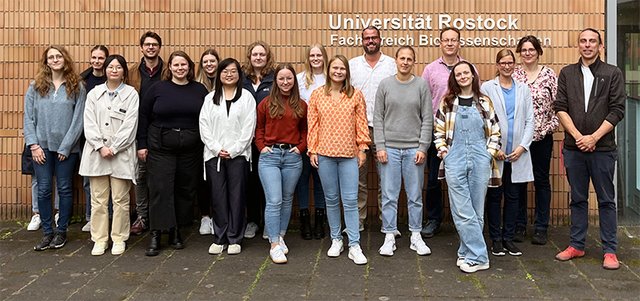For their study published in the journal Science on the genetic basis of the biosynthesis of gramine, a toxic alkaloid in barley, the three first authors receive this year's Prize for the Best Plant Science Publication. The prize, awarded by the Wilhelm Pfeffer Foundation of our German Society for Plant Sciences and endowed with 1,000 euros, goes in equal parts to:
- Sara Leite Dias from the Leibniz Institute of Plant Genetics and Crop Plant Research in Gatersleben (IPK), to
- Dr. Ling Chuang during the study at the Leibniz University Hannover (now at the Max-Planck-Institute for chemical ecology), and to
- Shenyu Liu, also from Leibniz University Hannover.
"The discovery of the key enzyme for the production of gramine completes our knowledge of its biosynthetic pathway and holds the potential for numerous applications in plant breeding and agriculture. In addition, the enzymatic mechanism for creating a new carbon-nitrogen bond is also quite unusual,“ Prof. Severin Sasso, president of the Wilhelm Pfeffer Foundation, explains the award for this Science study entitled 'Biosynthesis of the allelopathic alkaloid gramine in barley by a cryptic oxidative rearrangement'. The elucidation of gramine biosynthesis also enables its production in other organisms that cannot synthesize gramine themselves, as the authors have shown for the model plant Arabidopsis thaliana or the yeast Saccharomyces cerevisiae. The new results also provide a basis for the breeding of improved barley varieties that are more resistant to herbivores, fungi and bacteria in the future and thus make a contribution to sustainable pest control. At the same time, the existing toxicity of barley for ruminants can be reduced in the future.
More on DBG's awards for early career plant scientists:

















